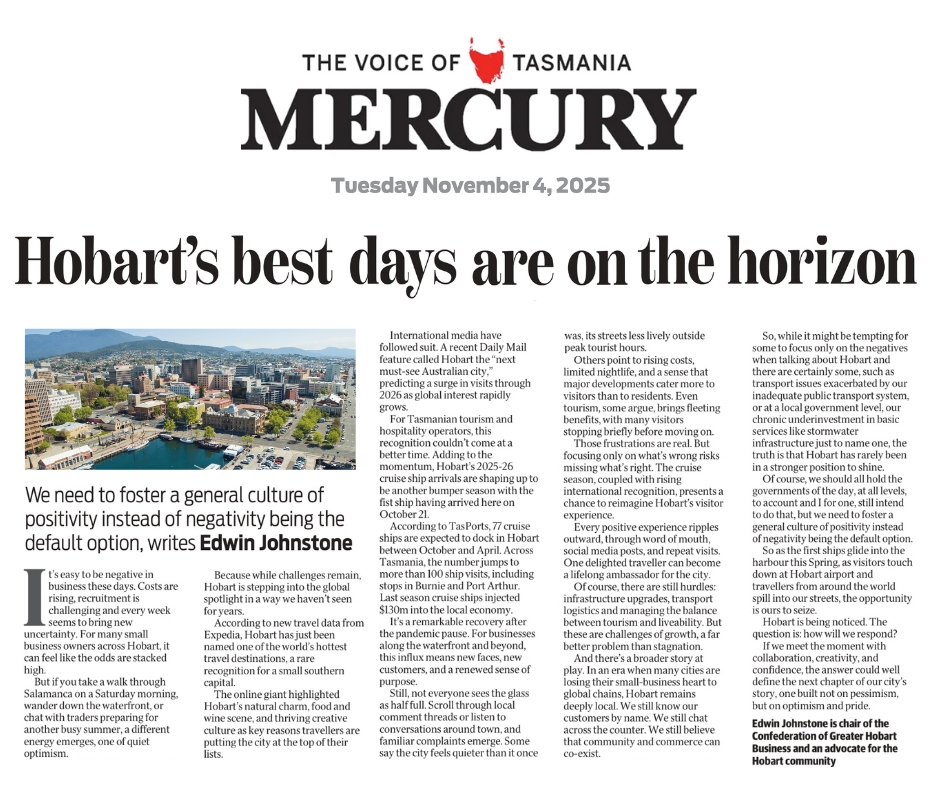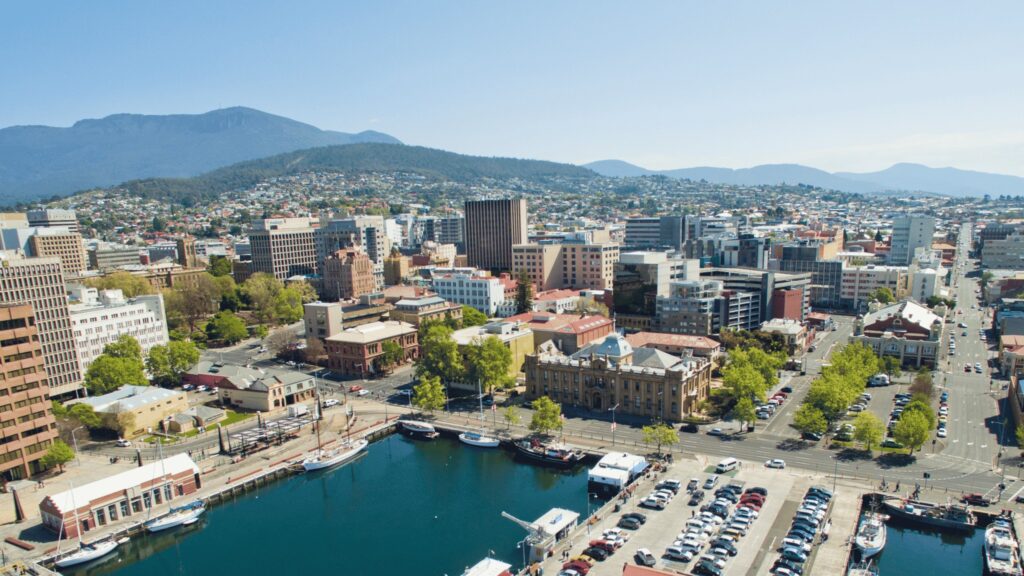
We need to foster a general culture of positivity instead of negativity being the default option, writes Edwin Johnstone
It’s easy to be negative in business these days. Costs are rising, recruitment is challenging and every week seems to bring new uncertainty. For many small business owners across Hobart, it can feel like the odds are stacked high.
But if you take a walk through Salamanca on a Saturday morning, wander down the waterfront, or chat with traders preparing for another busy summer, a different energy emerges, one of quiet optimism.
Because while challenges remain, Hobart is stepping into the global spotlight in a way we haven’t seen for years.
According to new travel data from Expedia, Hobart has just been named one of the world’s hottest travel destinations, a rare recognition for a small southern capital.
The online giant highlighted Hobart’s natural charm, food and wine scene, and thriving creative culture as key reasons travellers are putting the city at the top of their lists.
International media have followed suit. A recent Daily Mail feature called Hobart the “next must-see Australian city,” predicting a surge in visits through 2026 as global interest rapidly grows.
For Tasmanian tourism and hospitality operators, this recognition couldn’t come at a better time. Adding to the momentum, Hobart’s 2025-26 cruise ship arrivals are shaping up to be another bumper season with the fist ship having arrived here on October 21.
According to TasPorts, 77 cruise ships are expected to dock in Hobart between October and April. Across Tasmania, the number jumps to more than 100 ship visits, including stops in Burnie and Port Arthur. Last season cruise ships injected $130m into the local economy.
It’s a remarkable recovery after the pandemic pause. For businesses along the waterfront and beyond, this influx means new faces, new customers, and a renewed sense of purpose.
Still, not everyone sees the glass as half full. Scroll through local comment threads or listen to conversations around town, and familiar complaints emerge. Some say the city feels quieter than it once was, its streets less lively outside peak tourist hours.
Others point to rising costs, limited nightlife, and a sense that major developments cater more to visitors than to residents. Even tourism, some argue, brings fleeting benefits, with many visitors stopping briefly before moving on.
Those frustrations are real. But focusing only on what’s wrong risks missing what’s right. The cruise season, coupled with rising international recognition, presents a chance to reimagine Hobart’s visitor experience.
Every positive experience ripples outward, through word of mouth, social media posts, and repeat visits. One delighted traveller can become a lifelong ambassador for the city.
Of course, there are still hurdles: infrastructure upgrades, transport logistics and managing the balance between tourism and liveability. But these are challenges of growth, a far better problem than stagnation.
And there’s a broader story at play. In an era when many cities are losing their small-business heart to global chains, Hobart remains deeply local. We still know our customers by name. We still chat across the counter. We still believe that community and commerce can co-exist.
So, while it might be tempting for some to focus only on the negatives when talking about Hobart and there are certainly some, such as transport issues exacerbated by our inadequate public transport system, or at a local government level, our chronic underinvestment in basic services like stormwater infrastructure just to name one, the truth is that Hobart has rarely been in a stronger position to shine.
Of course, we should all hold the governments of the day, at all levels, to account and I for one, still intend to do that, but we need to foster a general culture of positivity instead of negativity being the default option.
So as the first ships glide into the harbour this Spring, as visitors touch down at Hobart airport and travellers from around the world spill into our streets, the opportunity is ours to seize.
Hobart is being noticed. The question is: how will we respond?
If we meet the moment with collaboration, creativity, and confidence, the answer could well define the next chapter of our city’s story, one built not on pessimism, but on optimism and pride.
Edwin Johnstone is the chair of the Confederation of Greater Hobart Business and an advocate for the Hobart community.


